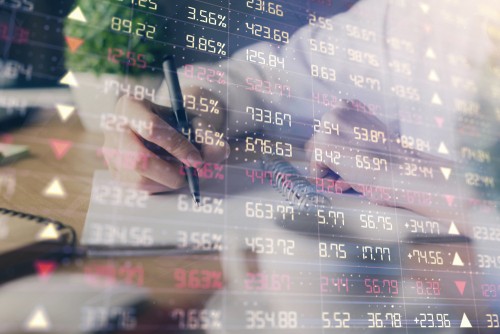The currency market (also known as Forex or FX for short) refers to the international market for buying and selling currencies worldwide. It is the largest financial market in the world.
Our Forex Signals
1 - month
Subscription
 Up to 15 signals daily
Up to 15 signals daily 76% success rate
76% success rate Entry, take profit & stop loss
Entry, take profit & stop loss Amount to risk per trade
Amount to risk per trade Risk reward ratio
Risk reward ratiomonth
3 - month
Subscription
 Up to 15 signals daily
Up to 15 signals daily 76% success rate
76% success rate Entry, take profit & stop loss
Entry, take profit & stop loss Amount to risk per trade
Amount to risk per trade Risk reward ratio
Risk reward ratiomonth
 Most popular
Most popular
6 - month
Subscription
 Up to 15 signals daily
Up to 15 signals daily 76% success rate
76% success rate Entry, take profit & stop loss
Entry, take profit & stop loss Amount to risk per trade
Amount to risk per trade Risk reward ratio
Risk reward ratiomonth
Lifetime
Subscription
 Up to 15 signals daily
Up to 15 signals daily 76% success rate
76% success rate Entry, take profit & stop loss
Entry, take profit & stop loss Amount to risk per trade
Amount to risk per trade Risk reward ratio
Risk reward ratioSeparate Swing Trading Group
 Up to 3 signals weekly
Up to 3 signals weekly 76% success rate
76% success rate Entry, take profit & stop loss
Entry, take profit & stop loss Amount to risk per trade
Amount to risk per trade Risk reward ratio
Risk reward ratiomonth
1 - month
Subscription
 Up to 15 signals daily
Up to 15 signals daily 76% success rate
76% success rate Entry, take profit & stop loss
Entry, take profit & stop loss Amount to risk per trade
Amount to risk per trade Risk reward ratio
Risk reward ratiotime

3
Payment methods
Trading platforms
Regulated by
Support
Min.Deposit
Leverage max
Currency Pairs
Classification
Mobile App
Min.Deposit
$100
Spread min.
Variables pips
Leverage max
100
Currency Pairs
40
Trading platforms
Funding Methods





Regulated by
FCA
What you can trade
Forex
Indices
Actions
Cryptocurrencies
Raw Materials
Average spread
EUR/GBP
-
EUR/USD
-
EUR/JPY
0.3
EUR/CHF
0.2
GBP/USD
0.0
GBP/JPY
0.1
GBP/CHF
0.3
USD/JPY
-
USD/CHF
0.2
CHF/JPY
0.3
Additional Fee
Continuous rate
Variables
Conversión
Variables pips
Regulation
Yes
FCA
No
CYSEC
No
ASIC
No
CFTC
No
NFA
No
BAFIN
No
CMA
No
SCB
No
DFSA
No
CBFSAI
No
BVIFSC
No
FSCA
No
FSA
No
FFAJ
No
ADGM
No
FRSA
71% of retail investor accounts lose money when trading CFDs with this provider.
Min.Deposit
$100
Spread min.
- pips
Leverage max
400
Currency Pairs
50
Trading platforms
Funding Methods




Regulated by
CYSECASICCBFSAIBVIFSCFSCAFSAFFAJADGMFRSA
What you can trade
Forex
Indices
Actions
Cryptocurrencies
Raw Materials
Etfs
Average spread
EUR/GBP
1
EUR/USD
0.9
EUR/JPY
1
EUR/CHF
1
GBP/USD
1
GBP/JPY
1
GBP/CHF
1
USD/JPY
-
USD/CHF
1
CHF/JPY
1
Additional Fee
Continuous rate
-
Conversión
- pips
Regulation
No
FCA
Yes
CYSEC
Yes
ASIC
No
CFTC
No
NFA
No
BAFIN
No
CMA
No
SCB
No
DFSA
Yes
CBFSAI
Yes
BVIFSC
Yes
FSCA
Yes
FSA
Yes
FFAJ
Yes
ADGM
Yes
FRSA
71% of retail investor accounts lose money when trading CFDs with this provider.
Min.Deposit
$50
Spread min.
- pips
Leverage max
500
Currency Pairs
40
Trading platforms
Funding Methods




What you can trade
Forex
Indices
Actions
Raw Materials
Average spread
EUR/GBP
-
EUR/USD
-
EUR/JPY
-
EUR/CHF
-
GBP/USD
-
GBP/JPY
-
GBP/CHF
-
USD/JPY
-
USD/CHF
-
CHF/JPY
-
Additional Fee
Continuous rate
-
Conversión
- pips
Regulation
No
FCA
No
CYSEC
No
ASIC
No
CFTC
No
NFA
No
BAFIN
No
CMA
No
SCB
No
DFSA
No
CBFSAI
No
BVIFSC
No
FSCA
No
FSA
No
FFAJ
No
ADGM
No
FRSA
71% of retail investor accounts lose money when trading CFDs with this provider.
Let’s discover below as to why trading in the Forex market is so important:
1. The possibility of opening long and short positions
Short selling is an integral part of Forex trading. Whereas you can take short positions in other markets using derivatives such as CFDs, Forex trading involves selling one currency, i.e. the quote currency to buy another, i.e. the base or reference.
Taking USD / RMB as an example, USD is the reference currency and RMB the quotation currency. If the USD / RMB exchange rate is 1.13156, then a USD equals a price of 1.13156 RMB. If you feel the Dollar will appreciate against the Yuan, you take a long position on the pair (you buy). If you think the Dollar will depreciate, you take a short position on the pair (you sell). Your gains or losses will then depend on the positions you have chosen to undertake; in other words, you can make gains regardless of the direction in which the market is moving.
2. Forex is the mode of International Trading
Exporters need to exchange payments received from foreign buyers into their national currency. Similarly, importers need to convert their domestic currency into US dollars to purchase overseas goods.
Besides, large companies need to create branches, warehouses, or factories in other countries in US dollars. Even currency transactions may be required for mergers or acquisitions. Only the foreign exchange market can meet these requirements.
3. The exceptional liquidity of the Forex market
Forex is the most liquid monetary market in the world, which means that there will always be an investor seeking to do a transaction at any time. Every day, the FX market has a trading volume estimated at more than $ 5 trillion, made by individuals, businesses, and banks, intending to generate gains for the vast majority.
The elevated liquidity of the Forex means that dealings can be concluded rapidly and without difficulty so that spreads (transaction fees) are frequently very low. This opens up opportunities for investors who can then speculate.
4. Forex volatility
The increased volume of daily currency trading is estimated to be trillions of dollars, making the price of some currencies very unstable. Huge profits are potentially achievable by speculating on two-way course movements. However, volatility is sometimes extremely unpredictable; the market can quickly turn against a trader, so it is vital to use Risk Management Tools to limit loss.
5. Leverage to maximize profits
Forex offers the opportunity to use CFDs; it is a leveraged product that can potentially make significant profits from low investment. Leverage allows you to open a position on the money market by paying only a small portion of the total value of the position in advance.
For example, positioning on EUR / GBP could only require a fund deposit of 3.33% of the sum value of the position. This primary deposit is called the margin or the cover.
The realized gains or losses will show the total worth of the position at the time it is closed; hence, leveraged trading offers the potential for large profits with a comparatively small investment. On the other hand, it can also increase the losses, which could then exceed the initial deposit. This is why it is significant to consider the entire value of the open leverage position before trading CFDs.
6. Invest in a wide variety of currency pairs
Forex trading provides you the chance to invest in a broad range of currency pairs. You can thus speculate on international proceedings and the strength of minor and major economies.
For example:
- Major currency pairs, EUR / USD, USD / JPY and GBP / USD
- Minor currency pairs, SGB / JPY, USD / ZAR, and CAD / CHF
- Emerging currency pairs, EUR / RUB, USD / CNH and AUD / CNH
- Exotic currency pairs, TRY / JPY, EUR / CZK, and USD / MXN
7. Perform Forex hedging transactions

When the exporter receives an order from another country, the product will not be shipped immediately. Therefore, the buyer will open a letter of credit to secure payment. Under the terms of the contract, the exporter usually dispatches the product within 45 days to 60 days.
At the same time, the national currency may appreciate or depreciate against the dollar. WeChat longeron means that when bidding for a terminal buyer, the exporter may or may not be aware of the actual amount they are planning to make a profit.
In the worst case, exporters may even suffer losses. To avoid such unfortunate incidents, exporters can sign contracts with trading banks to lock in exchange rates, and trading banks will use the foreign exchange market to hedge positions and protect their own interests.
Investors who purchase riskier overseas assets also hedge their exposure in the foreign exchange market. It is worth noting that when tensions between the two countries intensify (such as the United States and North Korea), investors will seek safe-haven assets such as the yen and the Swiss franc. If there is no foreign exchange market, such a transaction will be challenging to complete in the short term.
8. Multiple ways to invest
Forex offers a variety of trading platforms available online, tablet, and mobile apps, plus advanced platforms for those who want to move to a higher level of trading. You can access a series of Risk Management Tools to improve your trading.
9. Financial instrument settlement
In many cases, payments are sent from one country to another as a financial instrument (cheque, sight draft, letter of credit, international funds transfer, etc.). Although the transaction process is very complicated and may involve more than two banks, it is the exchange rate of the foreign exchange market that determines the exact amount that the receiving account will receive.
If a country’s loans are extended to development projects in another country, the country usually opens up credit lines that benefit the project’s participating companies. Even these financial instruments are settled through the mainstream exchange rate of the foreign exchange market.
Similarly, a country may invest in bond instruments issued by another country (such as US Treasury bonds). Or, a company or an investor may invest in bonds issued by other companies. When such financial instruments are redeemed, the amount of local currency that is ultimately credited depends on the mainstream exchange rate in the foreign exchange market.
10. Inflation can be controlled through FX
Central banks established by countries with stable political conditions often hold vast reserves of currencies (euro, US dollar, British pound, Japanese yen, Swiss franc, and Renminbi) as their foreign exchange reserves. These foreign exchange reserves are used to maintain economic stability. When a country’s economy tends to stabilize, the central bank will cut interest rates. This will make the national currency lose its appeal to foreign investors.
If necessary, the central bank will also intervene in the foreign exchange market (selling the national currency and buying the reserve currency) to ensure that the national currency remains depressed. The depressed domestic currency will keep the export industry competitive. Moreover, liquidity rises with low-interest rates, stimulating consumption. This will lead to economic growth.
When inflationary pressures begin to form, the central bank raises the benchmark interest rate. This will increase the attractiveness of the national currency to overseas investors. If necessary, the central bank will also intervene in the foreign exchange market (buy domestic currency and sell reserve currency) to ensure that the national currency remains strong.
When liquidity tightens, companies and individuals will rethink whether they want to consume. This will avoid overheating the economy. Therefore, if necessary, the central bank can use the foreign exchange market to boost or weaken the national currency and ensure the smooth operation of the economy.
If the foreign exchange market starts lacking, the world economy will stagnate because there is no exact mechanism to determine the currency exchange rate. Also, it will lead to large-scale manipulation of exchange rates in some countries, resulting in a severe imbalance of the world economy.


